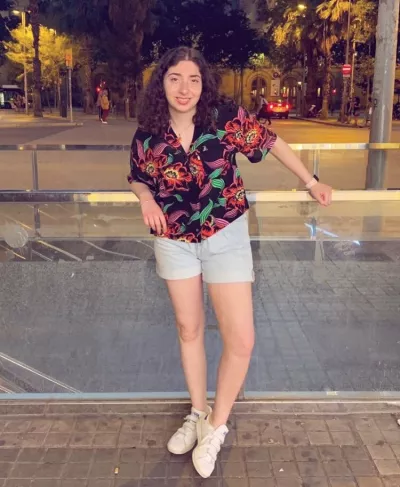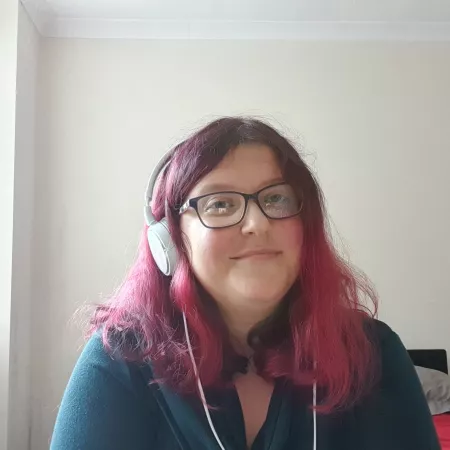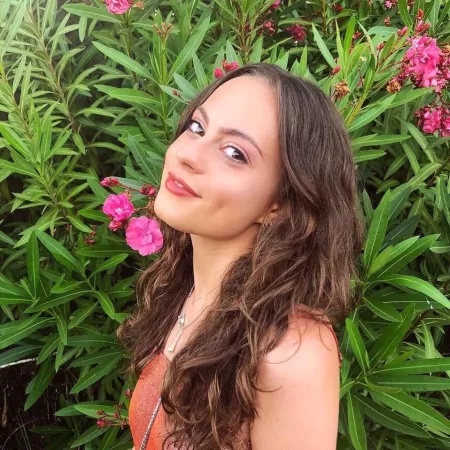
I was diagnosed with epilepsy at the age of three but the general opinion is that I’ve probably had it my entire life. When I was nearly 16 I was also diagnosed with high-functioning autism (ASD) and although this is a blog discussing epilepsy, I believe ASD is relevant as the two come hand-in-hand. Co-morbidity of epilepsy and autism is highly common yet there were nearly 13 years between my two diagnoses and this had a clear impact on my life growing up.
Being diagnosed with epilepsy so young I never really went through a ‘diagnosis process’, at least not one that I remember. No one ever sat me down and explained what epilepsy was, why I had seizures, how it would be treated or what long term effect it would have on my life. As far as I was aware, epilepsy was just something I had that made me a little different to other kids and caused terrifying illusions of Barney the Dinosaur sitting at the end of my bed singing to me (an aura I genuinely had as a young child).
It wasn’t until I did a school project on epilepsy at the age of 11 that I realised the full scope of this condition and discovered that there were actually charities out there to support people like me. For a while I became obsessive, learning everything I could in order to actually understand myself and although in full honesty this probably caused quite a lot of anxiety, it also brought some relief and made me aware that I was far from alone.
In some ways, not fully understanding my condition during my early years was probably a good thing, ignorance is bliss after all and it’s only with the ability of 20/20 hindsight and old school reports that I’m now able to see just how much impact epilepsy has had on my life. It’s clear that my condition held me back in every aspect of my development even if at the time it wasn’t obvious on the surface.
The one thing I was probably most oblivious to when growing up, was the effect it had on my social life. Having mainly nocturnal seizures I wasn’t invited to a single sleepover until I was 10 and I never once got invited to a Lasertag party despite them being the craze back in the early 00s but at the time none of this bothered me. Of course my own social difficulties didn’t help and as I got older building and maintaining friendships just got harder. Every new environment I entered, I did so with an invisible sign hanging over my head emphasising that I wasn’t the same as others. I was always misunderstood (partially because I didn’t yet have my second diagnosis) and people saw this as a reason to bully and taunt me both physically and emotionally.
However, bullying wasn’t the only problem I faced in school. I don’t remember a time that I wasn’t taking Anti-Epileptic Drugs (AEDS) twice a day and being on powerful medication exhausted me and significantly limited my ability to focus. I struggled immensely with the transition from primary to secondary school and found it hard to keep up with all the pressure. When I reached sixth-form it eventually became too much and in February 2011, I went into Status Epilepticus. This is when you have a seizure that lasts over 5 minutes or multiple seizures without regaining consciousness in between, if untreated it can become fatal. The emotional impact lead to me developing Non-Epileptic Attack Disorder and my school came to the conclusion that, my inability to pass exams due to the memory issues I have as a result of my AEDs, combined with the cost of the additional support I needed wasn’t worth it and I was unfairly forced to leave.
By this point epilepsy had become my entire identity, for several years it was the only word (alongside ASD) that I could think of to describe myself. For my whole life it had defined who I was and I couldn’t see how that was ever going to change. However, as tragic and soul destroying as being kicked out of school was, I’d now argue it was the best thing that ever happened to me. It gave me an incentive to prove myself; I begun studying at my local FE College doing a 100% coursework based BTEC, I discovered writing as both a hobby and a coping mechanism and eventually I not only got myself to university (something many education and health professionals doubted would ever happen) but in September 2018 I completed my Masters Degree!
Not a single day of my life has been easy. Growing up with epilepsy and being discriminated against because of it both directly and indirectly has left deep scars but I wouldn’t change anything.
I am who I am because I’ve battled with this condition for nearly 25 years. The best advice I could give to people with epilepsy growing up now, would simply be to learn and educate. I will always advocate that understanding is key, I’m confident that if there wasn’t so much stigma and ignorance surrounding epilepsy I’d be in a very different place now (potentially just mentally, potentially physically).
You’ve also got to make sure you don’t let it win. I’m not going to tell you ‘don’t let it hold you back’, or ‘don’t let it get you down’, because it will. Epilepsy is cruel but as long as you let yourself recover after seizures, don’t try to push your limits too much and work out what is best for you educationally, socially and mentally, you can truly achieve anything in your own way at your own pace. Also remember none of this is your fault. You didn’t choose to have this condition, you don’t make seizures happen and you are no less awesome than anyone else. You may never be the same as other people but you can still be absolutely amazing because whether you like it or not you are an epilepsy warrior and in a strange way that is a superpower!



